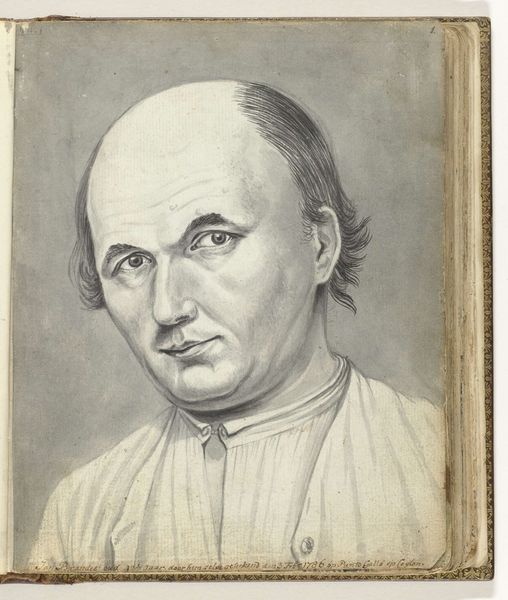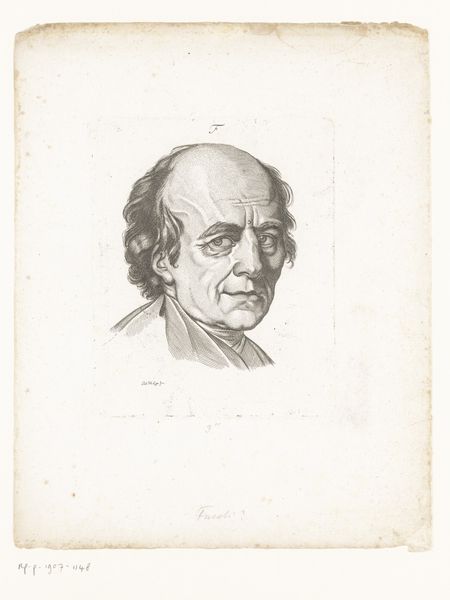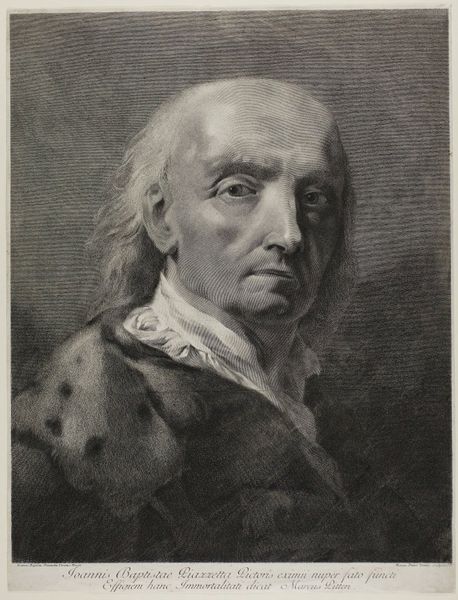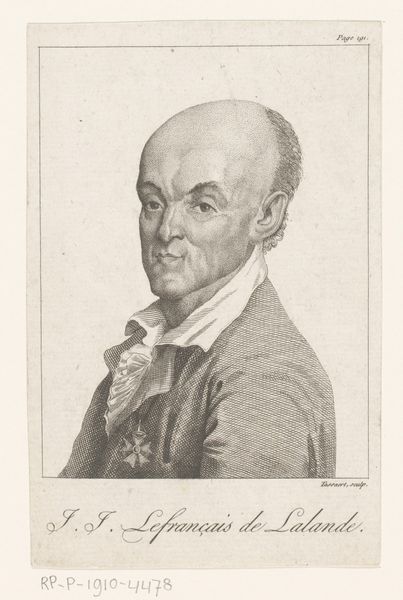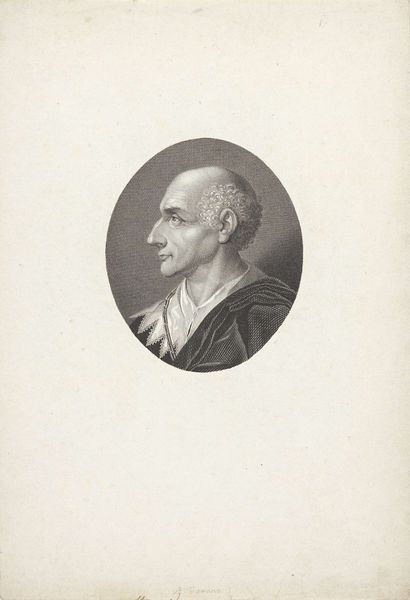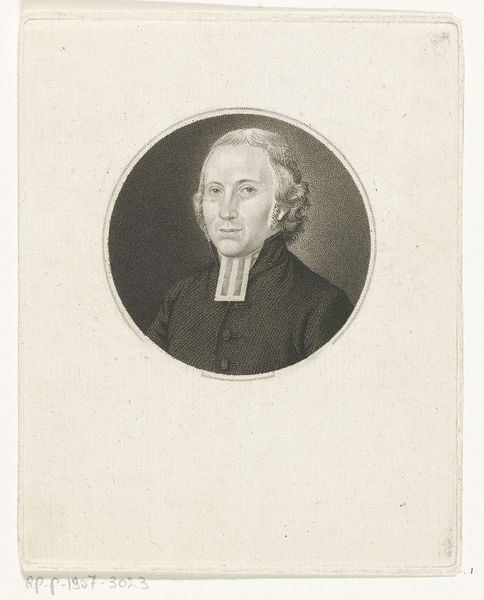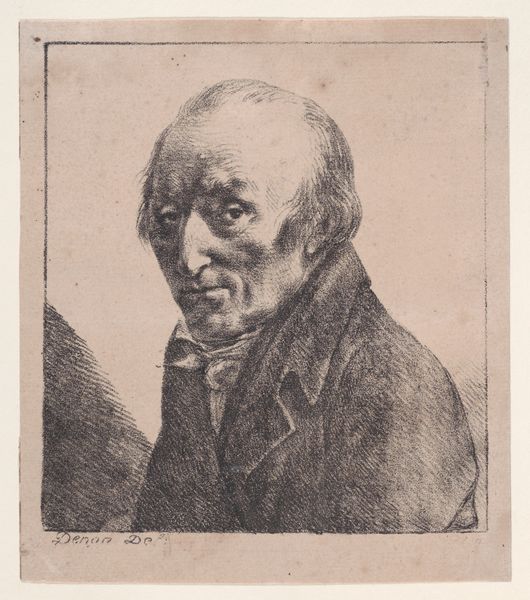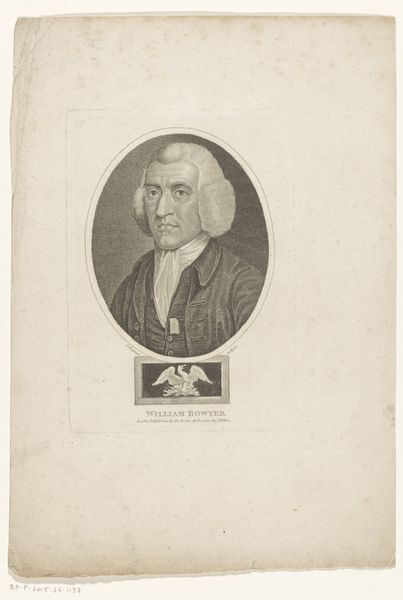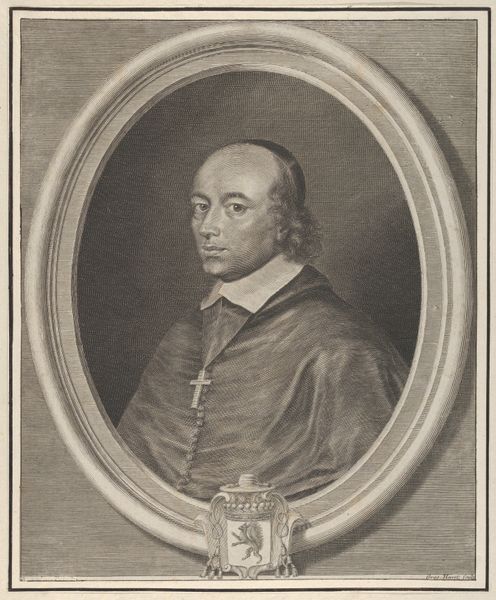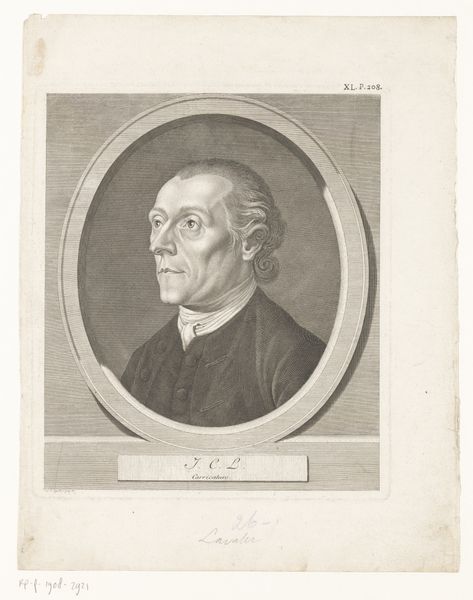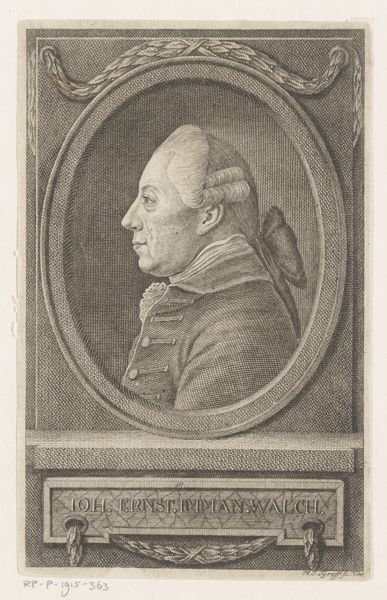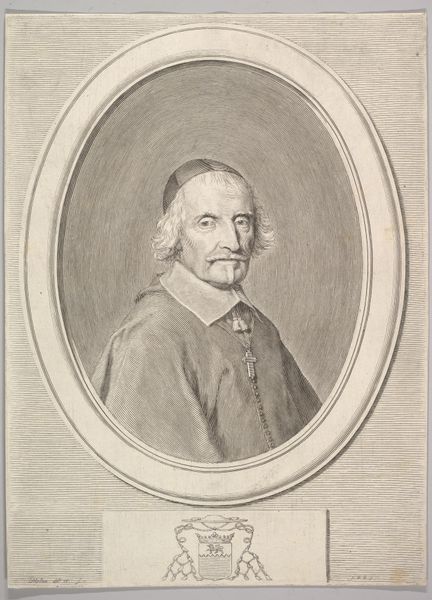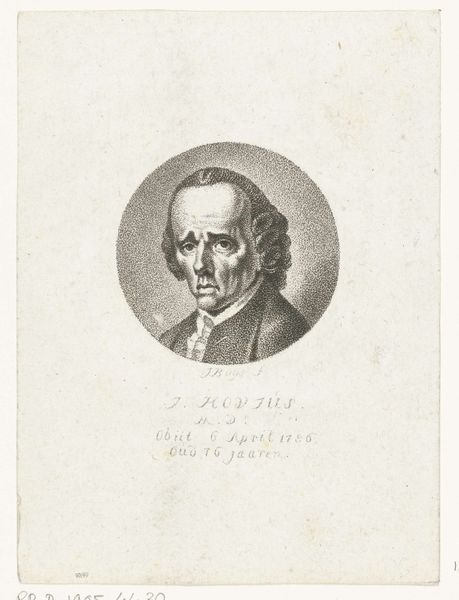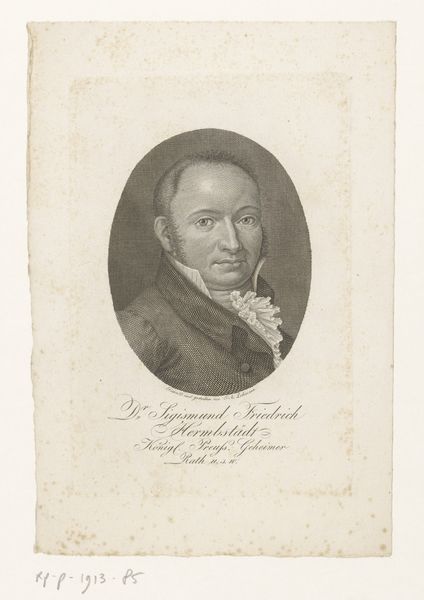
drawing, paper, pencil
#
portrait
#
drawing
#
neoclacissism
#
self-portrait
#
pencil sketch
#
charcoal drawing
#
paper
#
pencil drawing
#
pencil
Dimensions: height 195 mm, width 155 mm
Copyright: Rijks Museum: Open Domain
This is a self-portrait by Jan Brandes made with pen in the late 18th century. The most striking feature is the subject’s gaze. Brandes looks directly at the viewer, unflinchingly. This directness, this attempt to meet the eye across time, carries a potent psychological charge. Consider the motif of the direct gaze throughout art history. From ancient Roman portraiture to Renaissance self-portraits, it signals authority and self-awareness. Think of the Fayum mummy portraits, their eyes wide, gazing out as if to seize eternity itself. This act of looking becomes a way to assert presence, to defy oblivion. But here, there’s a vulnerability, a quiet plea for recognition. The gaze is a symbolic thread connecting us to the past, evoking a deep, subconscious response. It transcends mere observation; it becomes a silent dialogue, a communion across centuries. A symbol that keeps reappearing, evolving to meet each age’s anxieties and desires.
Comments
No comments
Be the first to comment and join the conversation on the ultimate creative platform.
